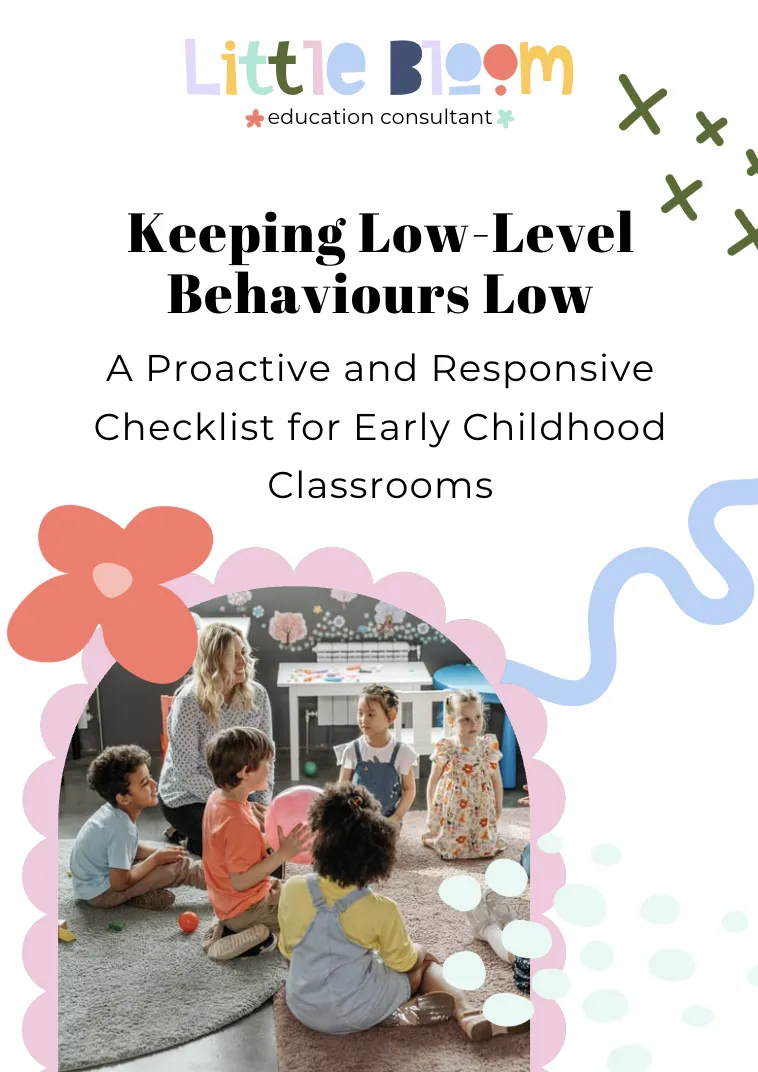Keeping Low-Level Behaviours Low:
A Proactive and Responsive Checklist for Early Childhood Classrooms
A practical checklist for early childhood educators who are ready to move beyond putting out spot fires.

Let me guess... you want your classroom to feel calm, connected, and engaging - but low-level behaviours like fiddling, calling out, or disrupting quickly snowball and derail even your best laid plans?
This free checklist gives you a clear, practical way to keep those behaviours low-level while preserving children’s dignity and fostering trust.
You don’t need gimmicks or harsh discipline; just proactive strategies, responsive tools, and the confidence to know what to do next.
What You’ll Learn Inside:
The key differences between proactive & responsive strategies (and why you need both).
What low-level behaviours are really telling you (hint: it’s not 'bad behaviour').
Specific, ready-to-use scripts and phrases to de-escalate situations calmly.
Subtle but powerful tweaks to your environment, routines, and teaching that prevent behaviours before they start.
What to avoid (and what to do instead) when things get tricky.
Grab your free checklist today and stop putting out those spot fires. Let's keep those low-level behaviours low.
Downloading this checklist means you’ll:
Feel calmer and more confident handling everyday behaviour challenges.
Build stronger connections and relational safety with your children.
Spend more time teaching and less time managing.
Walk into your classroom with a plan you can actually stick to and feel good about.
Get instant access - download your copy now.
You’ll get practical, evidence-backed tools you can start using immediately.
No spam. No fluff. Just real strategies that work.
By downloading this checklist you'll be added to my mailing list.
I don't send spam - ew. Unsubscribe at any time.
hi there!
I'm Danica.
(Da-nee-cah)
I'm an early childhood educator, university lecturer/tutor, practicum supervisor and, most importantly, mama to a delightfully curious 5-and-3/4-year-old (she's counting) and squishy delishy 1-year-old.
As an early childhood educator, consultant, and parent, I know firsthand how tricky it can be to support these niggly behaviours in a way that aligns with our values. How do I respond to the child who consistently calls out while I'm reading a book? The child who can't seem to keep their hands to themself?
Friend, there is a way!
That’s why I’ve created this guide - to help you feel clear, confident, supported and armed with a heap of proactive and responsive tools.
I can't wait for you to see what's inside x
